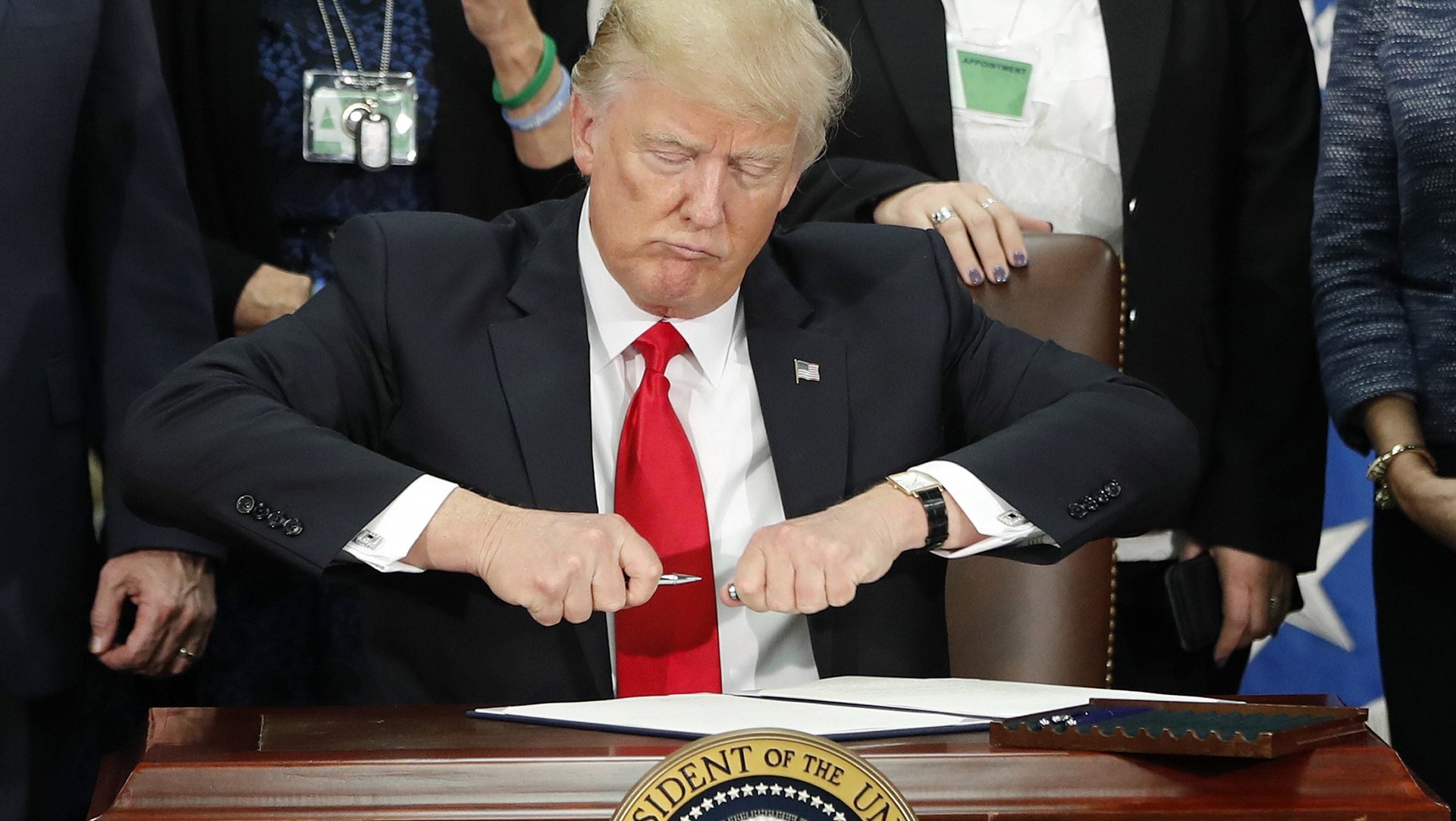“Why was there the Civil War?” Trump asked. We asked a non-American to explain
One of my favorite jokes involves asking Americans whether US history classes cover the events of every single day since the colonies were founded. After all, how else could a mere two centuries of history occupy the same amount of class time that an Italian child like me had to study entire millennia?


One of my favorite jokes involves asking Americans whether US history classes cover the events of every single day since the colonies were founded. After all, how else could a mere two centuries of history occupy the same amount of class time that an Italian child like me had to study entire millennia?
Now that I’ve lived in the US for over four years, I realize there actually is much to learn about American history—that time Native Americans dined with the settlers who had been slaughtering them, for instance, or how George Mason wrote much of the Bill of Rights but refused to sign the Constitution so everyone forgot about him—but my enthusiasm is lost on my American friends, who tend to know this stuff already. So you can imagine my joy at finally discovering the perfect US history study buddy: the president of the United States.
Like me, US president Donald Trump only recently discovered the “amazing job” done by abolitionist Frederick Douglass (he’s being recognized more and more), and that Abraham Lincoln was actually the founder of the GOP, which means Grand Old Party. Like me, Trump is eager to share his newfound knowledge. Also like me, he doesn’t seem to impress many people by doing so (Americans can be mean).
Still, the president keeps on trucking, setting a great example for students everywhere: There is no such thing as a stupid question, and there is never shame in asking what you don’t know. (Dubito ergo cogito ergo sum, as Descartes would say.) Trump has even started reading.
It must have been this unquenchable thirst for knowledge that propelled the president to raise some important US history questions during an interview with Washington Examiner reporter Salena Zito that was broadcast on Sirius XM. Over the course of their conversation, Trump and Zito got to talking about Andrew Jackson, US president No. 7. Zito mentioned that Trump’s campaign and victory had been compared to Jackson’s.
“When was Andrew Jackson?” Trump asked (rhetorically). “1828. That’s a long time ago.” He went on to characterize Jackson’s campaign as “very very mean and nasty,” while calling the man himself a “very tough person” with “a big heart.” Trump also said Jackson (who died 16 years before the Civil War) “was really angry that he saw what was happening with regard to the Civil War” and might have prevented the conflict altogether if he’d served as president just a few years later:
“People don’t realize, you know, the Civil War, if you think about it, why? People don’t ask that question, but why was there the Civil War? Why could that one not have been worked out?”
Why indeed. For those—like the president and I—seeking to understand the complexities of today’s America, Trump’s query is a great opportunity for a quick refresher.
The Civil War: Why though?
When Andrew Jackson was president, the United States were not very united at all. The northern and southern states did not get along for a number of social and economic reasons, which all boiled down to one core issue—what the southern states called a “peculiar institution,” but was otherwise known as slavery.
In short, the southern states’ economy was supported by slave labor, and the rulers of the those colonies didn’t think there was anything criminal or inhumane about owning people, stripping them of all rights, torturing them, raping them, and then turning a profit on their labor. Not even Jackson himself—who brutalized his slaves, but will somehow still share $20 bill space with Harriet Tubman—thought there was a problem. That might be why he, as Trump reports, didn’t see cause for a war. (“Can’t we all just exploit our human property and get along?,” Jackson and his big heart might have wondered at the time.)
So why bother with a war? The answer, as Lincoln put it, is because the US “began by declaring that all men are created equal; but now from that beginning we have run down to the other declaration, that for some men to enslave others is a ‘sacred right of government.’ These principles,” Lincoln wrote, “cannot stand together.”
Unmoved by such semantics, the southern states refused to entertain the idea of giving up slavery. So the solution was to either break up the union (and leave nearly 4 million people enslaved) or fight a war that would end slavery, and keep the country together.
That, in short, is why the US Civil War could not be “worked out.”